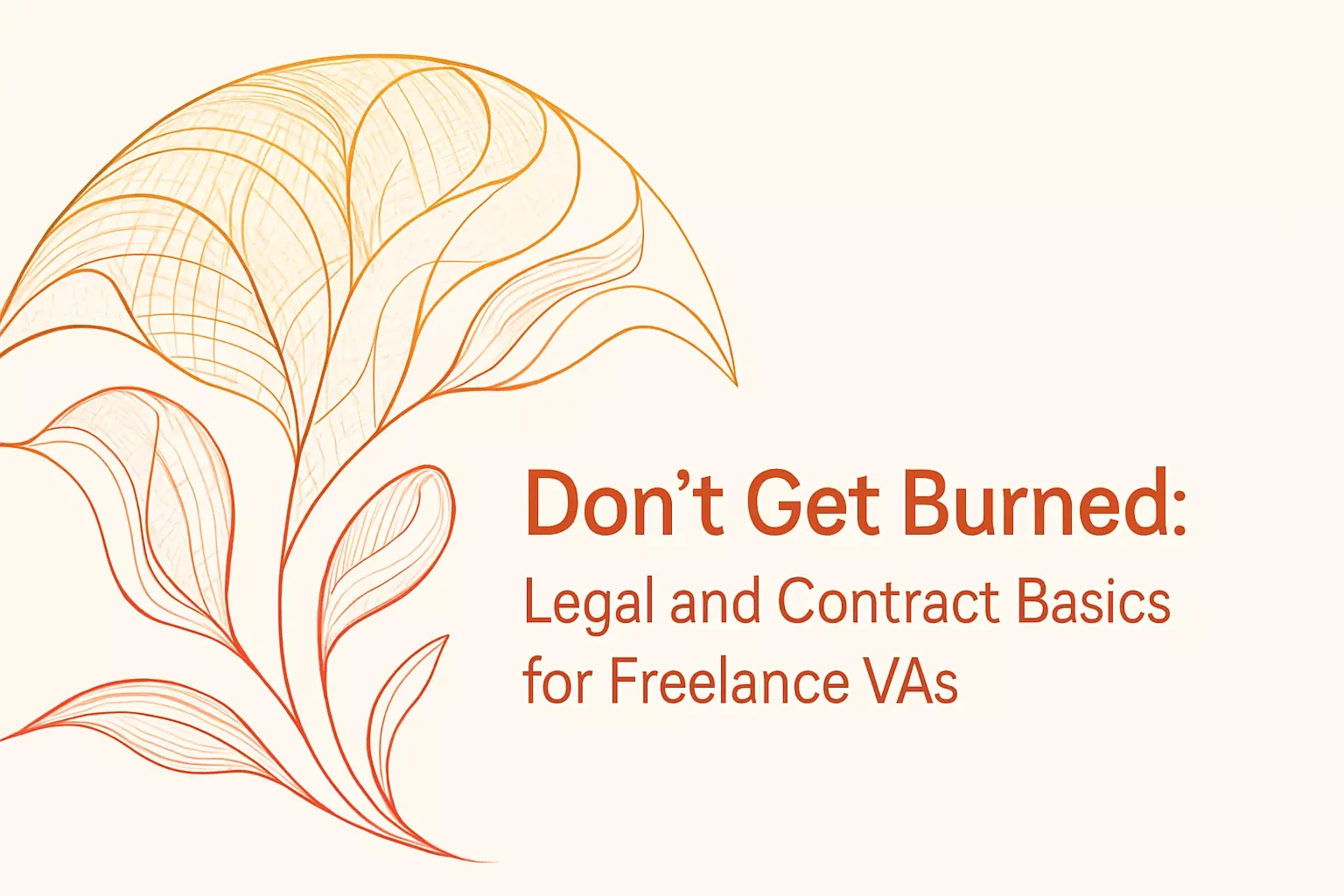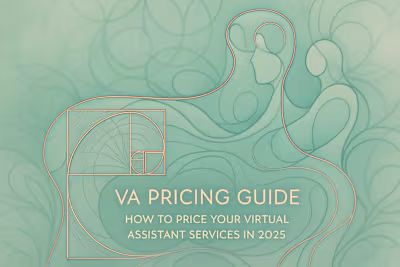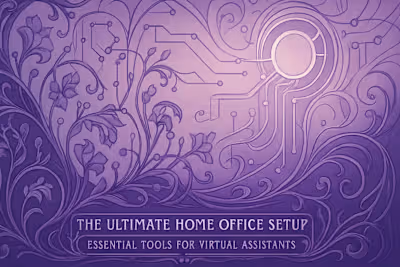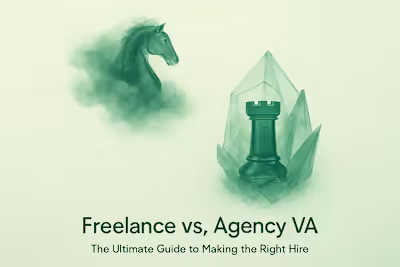Don't Get Burned: Legal and Contract Basics for Freelance VAs

Don't Get Burned: Legal and Contract Basics for Freelance VAs
Why You Absolutely Need a Contract for Every Client
Setting Clear Expectations
Ensuring You Get Paid
Establishing Professionalism
10 Key Clauses Your VA Contract Must Include
Scope of Work and Deliverables
Payment Terms and Schedule
Confidentiality and Non-Disclosure (NDA)
Termination Clause
Intellectual Property Rights
Independent Contractor Status
Choosing the Right Business Structure: Sole Proprietor vs. LLC
Sole Proprietorship: The Simple Start
LLC: Protecting Your Personal Assets
Understanding Your Tax and Insurance Obligations
Self-Employment Taxes
Professional Liability Insurance
Taking Action: Your Next Steps
References
Don't Get Burned: Legal and Contract Basics for Freelance VAs
Why You Absolutely Need a Contract for Every Client
Setting Clear Expectations
Ensuring You Get Paid
Establishing Professionalism
10 Key Clauses Your VA Contract Must Include
Scope of Work and Deliverables
Payment Terms and Schedule
Confidentiality and Non-Disclosure (NDA)
Termination Clause
Intellectual Property Rights
Independent Contractor Status
Choosing the Right Business Structure: Sole Proprietor vs. LLC
Sole Proprietorship: The Simple Start
LLC: Protecting Your Personal Assets
Understanding Your Tax and Insurance Obligations
Self-Employment Taxes
Professional Liability Insurance
Taking Action: Your Next Steps
References
Posted Jun 30, 2025
Don't start your VA journey without legal protection. Learn the essential contract clauses, business structures, and legal basics every freelance virtual assistant needs to know.








